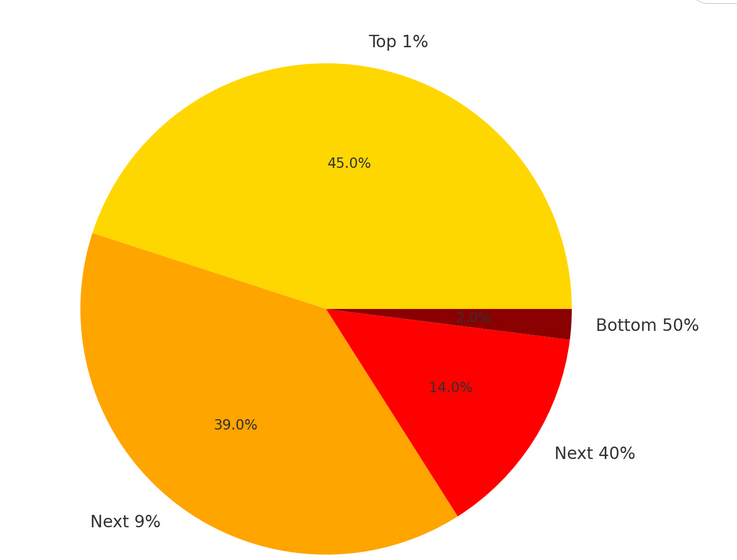It is important for socialists is to provide a positive and realistic vision of what a socialist future could look like. We have no ready examples, we have nothing that comes near what socialism promises. Capitalism has been dominant for so long that it seems natural and irreplaceable. Socialists must argue that this is not so, that humans can be the authors of their history.
Obscene inequalities of capitalism

There can be no justification for the obscene wealth or the miserable poverty that capitalism produces.
The figures are stark. The wealthiest 1% of the world’s population “earn” 22% of its total global income. The top 10% get 52%. The bottom 50% earn only 18%.

The figures for total wealth are even worse. The wealthiest 1% own 45% of the world’s private wealth. The poorest 50% own only 2%.
“System change”
Environmental activists are mostly aware that capitalism and the relentless pursuit of profit is behind global warming and the steady destruction of the environment. During and after the Friday’s for Future protests, there was many calls for “system change”. This was an acknowledgement that capitalism is to blame for the climate crisis.
Winston Churchill, the conservative leader of Great Britain during the Second World War, has (wrongly) been credited with this comment on democracy: “Democracy is the worst form of government, except for all the others.”
There is no doubt that many would say something similar about capitalism – that there is not a credible alternative. “Common sense” tells us that for all its faults, capitalism is here to stay, and that anything else is inevitably worse.
Utopian socialism
Marx and early socialists avoided providing any descriptions of a socialist society. This was partly to distinguish their theories and their politics from those of the “utopian socialists” of the early 19th century. Utopian socialists believed that society could be moved towards socialism through the power of ideas. Marx and his followers were much more realistic, understanding the political and economic power underpinning capitalism, and the need to overcome that power if socialism were to be achieved. But Marx and his early followers also believed that there was no need to describe socialism. They predicted that capitalism would not last long, and that a transition to socialism was well within reach.
A credible alternative to capitalism
The history of the last 150 years, and the strength and resilience of capitalism, mean we can no longer assume that socialism will be the inevitable result of the failure of capitalism. We have to construct a credible alternative.
In doing this, a measure of utopian thinking is essential. We need to look beyond what “common sense” may tell us, and understand that history is made by humans. As humans, we have a role in shaping society’s future. Under capitalism, relationships between humans are reduced to transactions governed by money and commodities. We need a vision of a viable alternative.
What will socialism look like?
Socialism offers a vision of society built on cooperation and sharing, where economic and political power are not wielded by a wealthy elite, but by ordinary people, through a system of democratic decision-making.
- Essential needs such as healthcare, education, housing, water, energy and local transport are freely available.
- Workers have democratic control over their workplaces, ensuring fair wages, dignified conditions, and an economy driven by social good rather than corporate greed. Wealth and resources are distributed equitably, eliminating the poverty and vast inequalities we have today.
- Environmental sustainability are a central goal, with the rapid phasing out of fossil fuels, and there is massive support for regenerative agriculture. Instead of a system based on endless consumption and corporate exploitation, the economy is planned democratically to meet human and ecological needs.
This picture of socialism is, of course, an idealized one. Real life is messy, and there are bound to be many contradictions and problems. But there is no reason to believe that these ambitions should not guide our efforts to build a new society.
Questions
While a vision of socialism is essential, many questions that people have about its implementation must be answered:
- Is socialism economically viable?
- What incentives will people have to work conscientiously?
- Who will decide on the allocation of resources?
- What would prevent the wielding of power by a bureaucratic elite?
- Will private business be allowed?
- Will non-socialist political parties be allowed?
- Why have previous attempts to create socialist societies (e.g. Soviet Union, Venezuela) failed?
- How will society transition from capitalism to socialism? Is democratic change possible, or will force be necessary?
- How will socialism operate in a globally connected but very unequal world?
I will address some of these questions in future articles.